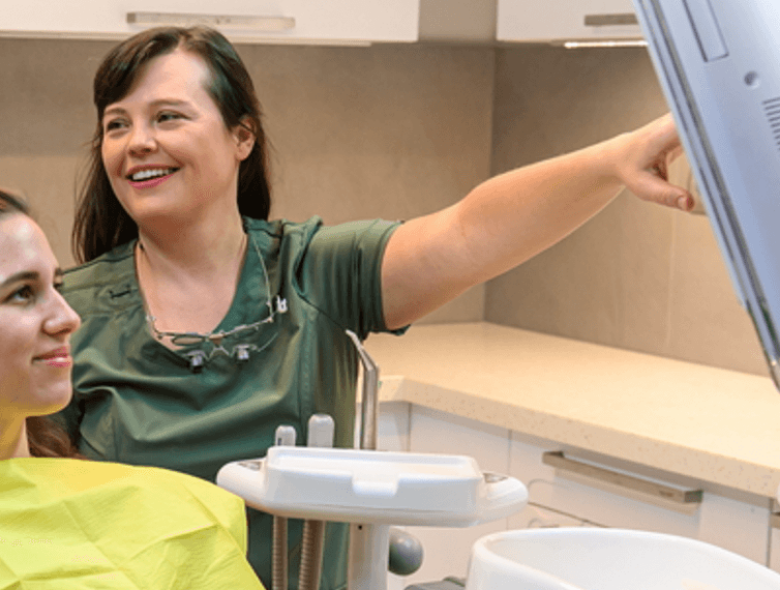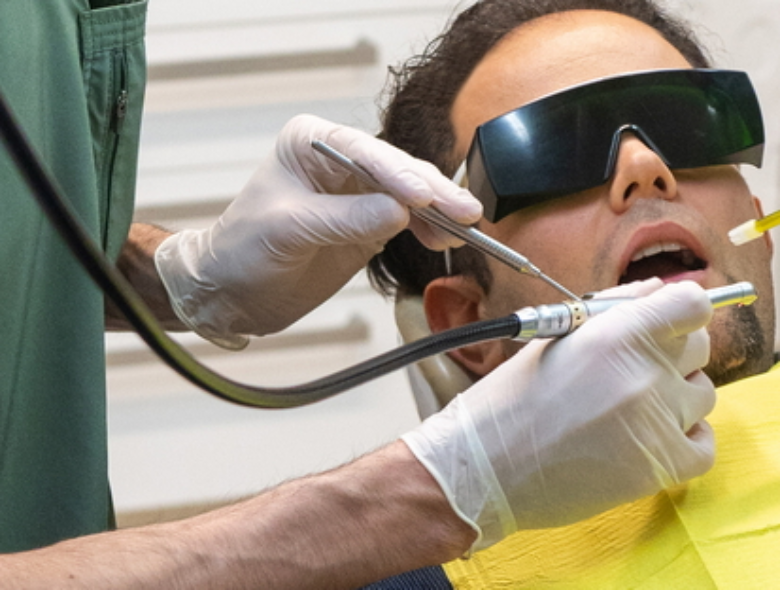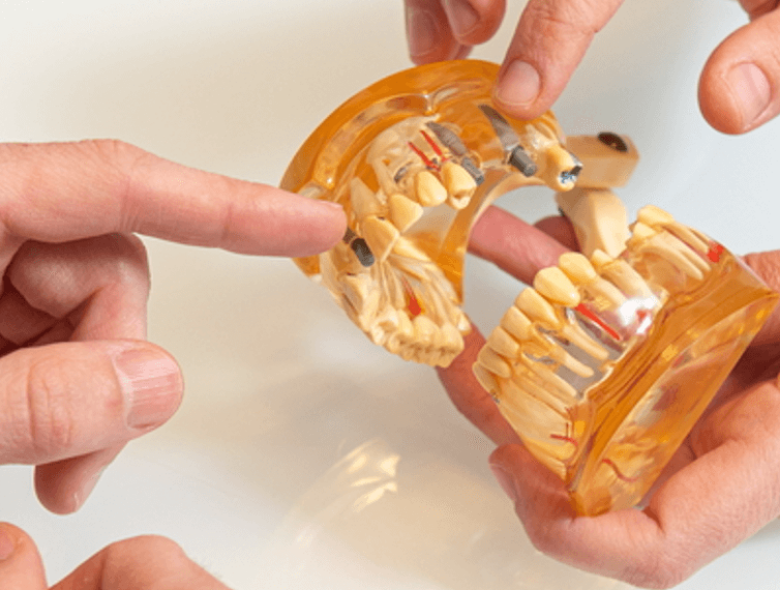
- Do you feel, that the denture you have in your mouth is loose and easy to turn out, or do you have to use more and more adhesive to keep it in place?
- What is the difference between the traditional screw-shaped implants and the MDI mini-implants?
- Benefits of the MDI mini-implant:
- IMTEC MDI mini-implant system – demanding and comfortable solution for full toothless dental statuses
- You need 4 lower and 6 upper mini-implants to have a stabilized denture
- The procedure of implantation - mini implants
- Biostimulation with laser
- What is the process of fixing the denture?
- How to transform your existing denture into a new one anchored by mini-implants?
- Are there any dangers or disadvantages of wearing a denture fixed by mini-implants?
- IMPLANTOLOGISTS:
- We are looking forward to seeing you at our clinic!
Do you feel, that the denture you have in your mouth is loose and easy to turn out, or do you have to use more and more adhesive to keep it in place?
If your answer is yes, IMTEC MDI mini-implant system is recommended for you, even if you don’t want to throw out your old denture.
What is the difference between the traditional screw-shaped implants and the MDI mini-implants?
The diameter of the normal, commonly used implant is 4 mm. The indication of it is the substitution of one missing tooth. Of course, the substitution means that with the cooperation of a dental technician, we prepare and tie a crown onto the implant.
This kind of implant can be used as an anchorage when there are no teeth left in the mouth, and it can provide stability for the denture.
For those elderly patients who have worse bone conditions and do not want to undergo bone-replacing surgery, we recommend the mini-implant system, which provides less post-surgical trauma, but the same stability for the denture as the normal implants.
The diameter of the mini-implant is 1,8 mm.
Benefits of the MDI mini-implant:
- this is the most cost effective solution after full mouth extractions
- the denture is stabilized by 4 or 6 mini-implants
- you can chew confidently again, you can eat anything, it will stay stable
- the denture would not make speaking or laughing difficult
- there is no need to use adhesives, your denture will stay where it has to stay, it won’t rise or slide
- it is so simple, reliable and fixable, that you will forget you have it
- if it is needed you can easily take out your denture and flip it back
IMTEC MDI mini-implant system – demanding and comfortable solution for full toothless dental statuses
This system is designed for those statuses, where the bone supply is less than ideal, usually caused by the long period after teeth loss. This is the best solution for you if you want to wear your denture without any complications.
You need 4 lower and 6 upper mini-implants to have a stabilized denture
When you have all your teeth removed, you need only 10 mini-implants placed into your jawbones to have a cost-effective yet stable anchorage. If you have only one toothless arch, you can still have mini-implants. If the toothless one is the lower arch, you will need 4 mini-implants, and if it is the upper, you will need 6 of them.
The procedure of implantation - mini implants
The implantation of the MDI mini-implants is performed in the same precise way as the traditional ones. In our dental practice, the surgery is always performed by a dentoalveolar surgeon, with the request of a previous digital panoramic x-ray and a 3D CBCT to help design the implantation. At the next appointment, the surgery and the additional laser therapy can be performed.
Biostimulation with laser
In our dental practice, implantation is followed by a laser biostimulation treatment. This means that with the help of laser, we sterilize the surgical area without causing any further pain. Laser therapy is proven to be efficient in providing faster and better healing, bacteria cannot stick to the treated surface and the implantation can happen in protected surroundings.
What is the process of fixing the denture?
We place the titanium implants into the jawbone with a little ball-shaped ending over the gingiva. The housing of the ball-shaped ending is inserted into the denture. This procedure is fast and comfy. The titanium screw that we use is biocompatible, body-friendly, it provides safe and trouble-free osseointegration. This is the basis of comfortable and highly-stabilized dentures.
How to transform your existing denture into a new one anchored by mini-implants?
If you already have a denture that functions well, and is in good shape, you can have it transformed into a kind of new one by having mini-implants as anchorage. After the prescribed healing period, you can use it without any complications.
Are there any dangers or disadvantages of wearing a denture fixed by mini-implants?
With thorough preparation (taking and analyzing the panoramic x-ray and 3D CBCT) mini-implanting has no dangers or disadvantages. It is important to know that this kind of dental care is recommended for those who do not have the minimal amount of bone to get a normal, traditional implant.
This is a solution that improves your quality of life, but only with attentive analyzing, designing and preparation. After the proper healing time (3 to 6 months) you can have your smile back at much more affordable prices than the traditional implants.
IMPLANTOLOGISTS:
Dr. Márta Fülöp Papp
We are looking forward to seeing you at our clinic!
Ask for the help of our dentists and oral surgeons in constructing a comfortable and stable denture. The experienced, prepared and always kind members of our team are happy to help you with the best of their competence, care and attention.
Related articles


Which kind of dental implant do I need?
